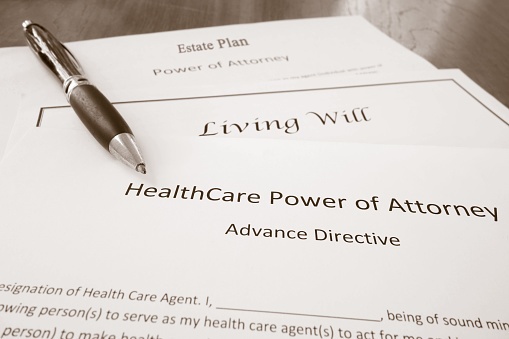Have you thought about who would make medical decisions for you if you were unable to make them for yourself?
According to researchers in the Journal of the American Medical Association, nearly half (47 percent) of hospitalized older adults required some degree of surrogate decision-making, with 23 percent requiring all medical decisions be made via surrogate. Of those 47 percent who required at least one decision be made via surrogate, 57 percent of those decisions involved life-sustaining care.
What Is a Medical Power of Attorney?
A medical power of attorney, also known as a healthcare power of attorney or healthcare proxy, is a legal document that designates someone to be your proxy in the event you’re unable to make decisions about your medical care on your own. This person can talk with doctors, view your medical records and make decisions about medical tests and treatment on your behalf.
What To Consider When Choosing a Medical Power of Attorney
Contrary to popular belief, a medical power of attorney does not have to be a family member. Nor do you have to only have one when you enter retirement. In fact, The Conversation Project recommends establishing a medical power of attorney as soon as someone turns 18. If you already have a medical power of attorney in place, you should review your choice of proxy when you enter a new decade of life. If you haven’t selected a medical power of attorney yet, or want to change your proxy, here’s what to consider.
Medical Power of Attorney: Who To Choose
Keep in mind that your proxy will be tasked with tough and quick decisions on your behalf. When weighing your options, consider if the person will:
- Be comfortable making decisions on my behalf even if my wishes differ from theirs
- Stand up for me
- Be capable of talking to and asking questions of medical providers
- Ask questions if they don’t understand treatment options
- Be calm in a crisis or quickly changing situation
Also consider if this person’s emotional connection to you would get in the way of them making decisions about your care.
Common health care proxies include: A partner or spouse, a child, a sibling, a friend, someone from your place of worship.
Medical Power of Attorney: Who not To Choose
In Ohio, your medical power of attorney cannot be:
- A member of your health care team
- The administrator of a nursing home where you are receiving care
- An employee of the healthcare facility where you are receiving treatment (unless he or she is a relative or you both are a member of the same religious order)
- A person you have a civil or protective order against
- A person from whom you are in the process of divorcing or a person from whom you are legally separated
You do not need an attorney to fill out your health care proxy forms. However, in Ohio you do need to have your signature of the medical power of attorney documents witnessed by either a notary public or by two adults. These witnesses cannot be related to you, your doctor, your healthcare proxy or the administrator of a nursing home where you are receiving care.











